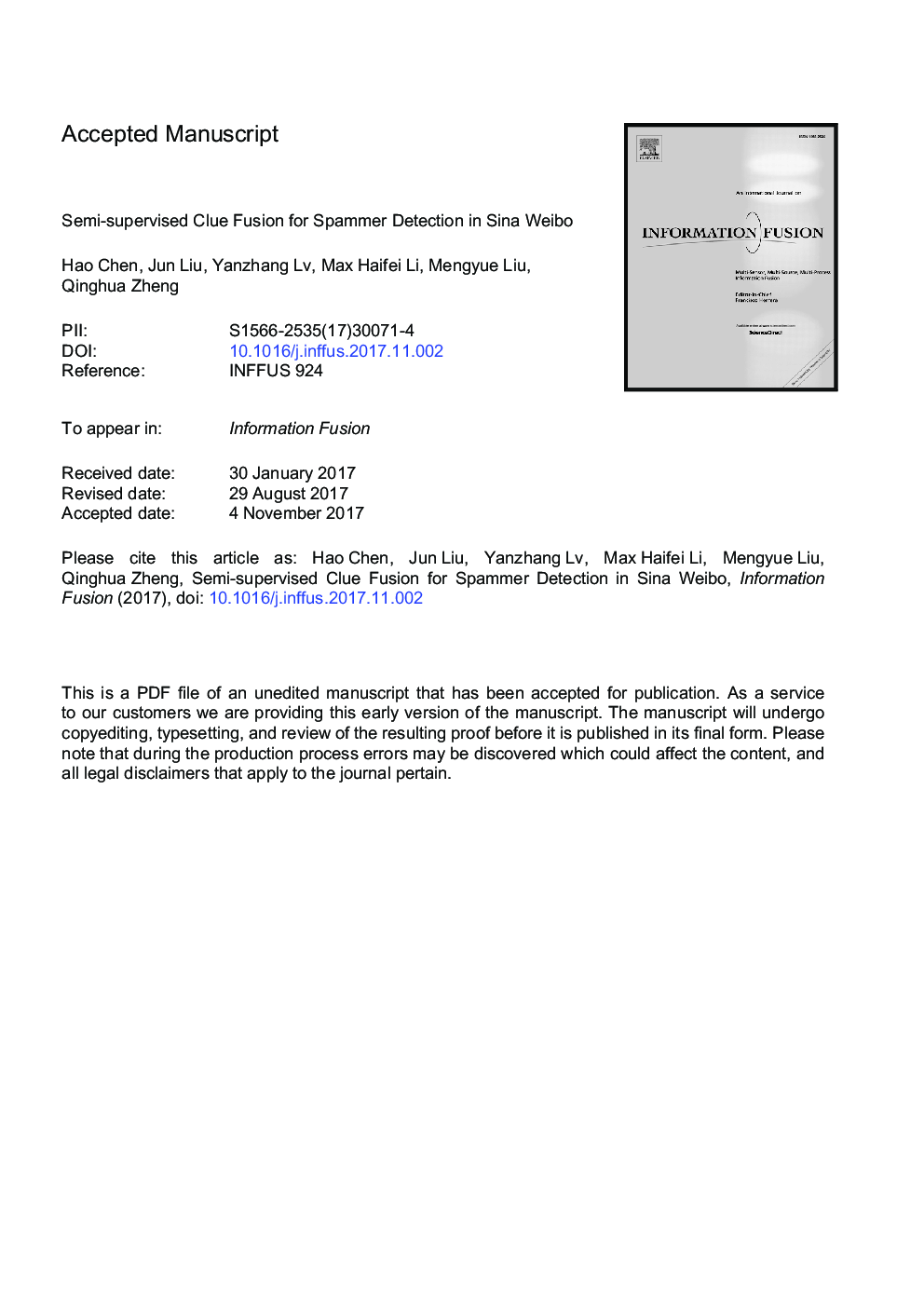| Article ID | Journal | Published Year | Pages | File Type |
|---|---|---|---|---|
| 6937926 | Information Fusion | 2018 | 16 Pages |
Abstract
Microblog is a popular social network platform that facilitates users to collect and spread information on the Internet, but on the other side it stimulates new forms of spammers, who can hinder effective information dissemination. Spammers in Sina Weibo use various spamming strategies to evade protection mechanisms, which presents practical challenges in spammer detection. First, clues to identify spammers are usually hidden in multiple aspects, such as content, behavior, relationship, and interaction. Second, labeled training instances are lacking for learning. In this paper, a novel approach called Semi-Supervised Clue Fusion (SSCF) is proposed to conduct effective spammer detection in Sina Weibo. SSCF acquires a linear weighted function to fuse the comprehensive clues explored from multiple aspects to obtain final results. SSCF iteratively predicts the unlabeled instances based on a small size of primarily labeled instances in a semi-supervised fashion. SSCF is empirically validated on the real-world data from Sina Weibo. Results show that this approach significantly outperforms state-of-the-art baselines.
Keywords
Related Topics
Physical Sciences and Engineering
Computer Science
Computer Vision and Pattern Recognition
Authors
Hao Chen, Jun Liu, Yanzhang Lv, Max Haifei Li, Mengyue Liu, Qinghua Zheng,
